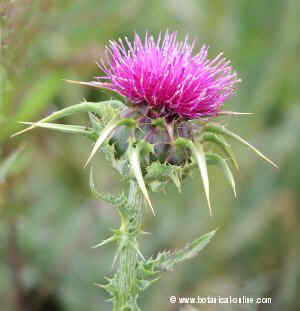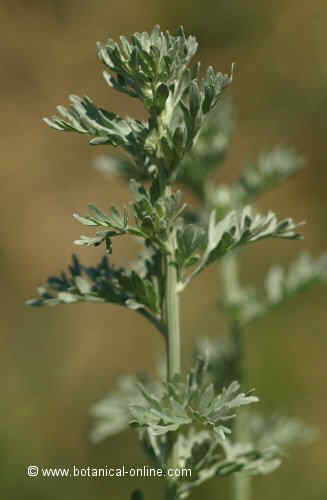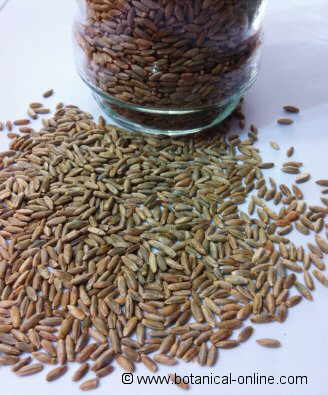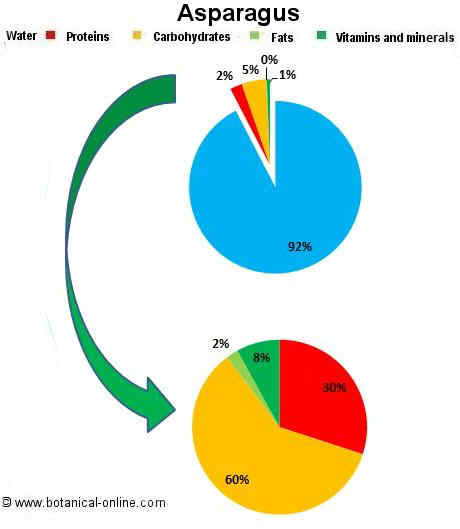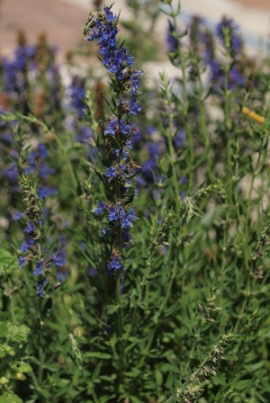When should you not eat licorice?
WHEN YOU SHOULD NOT TAKE LICORICE OR LIQUORICE
What is licorice and what is it used for?
Licorice (Glycyrrhiza glabra) is a plant from the Papilionaceae family, whose root is used in food and natural medicine. The root has a strong, sweet flavor, with a bitter aftertaste due to its active ingredient, glycyrrhizin (saponin).
Glycyrrhizin has sweetening, expectorant, antiulcer, antitussive, and anti-inflammatory properties. It has mainly applications as an antigastric, as it increases gastric mucus secretion and has anti-inflammatory and antiulcer effects.
What contraindications does licorice have?
In healthy people, licorice consumption is safe when consumed in the recommended doses and in the amounts found in food. Side effects may occur with long-term treatment, lasting more than 4 weeks.
Possible licorice poisoning occurs unintentionally, usually from ingesting large amounts of licorice candies. Caution should be exercised when consuming these products, as high doses can cause hypertension and water retention.
Furthermore, these effects can be aggravated if combined with the use of laxative infusions such as cascara sagrada or senna.
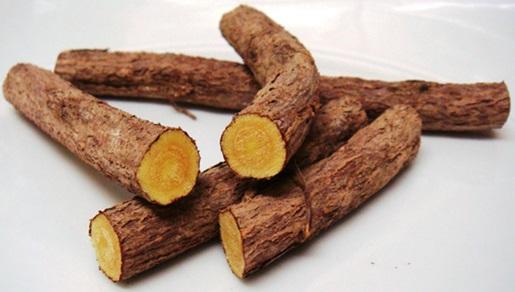
Licorice during pregnancy and breastfeeding
- Pregnancy and breastfeeding: Licorice is strictly contraindicated during pregnancy because it can cause abortion or premature birth. It has emmenagogue effects and affects hormone levels. There is insufficient information on the safety of licorice root during breastfeeding, so its use is not recommended during this period. Before administering this plant to children, it is recommended to consult a doctor.
- Premenstrual syndrome: Licorice treatments are not recommended for women with premenstrual syndrome, as the plant may increase fluid retention and bloating.
Contraindications in diseases
- Hypertension: Licorice is contraindicated in people with hypertension. The plant may increase blood pressure too much. It should also not be taken if you are taking medication, as it may interfere with the medication’s effect and cause potassium imbalances. Preparations with DGL licorice or without glycyrrhizin may be appropriate in these cases.
- Lack of desire: Studies have shown that licorice can cause loss of libido in men and worsen erectile dysfunction because it causes decreased testosterone levels.
- Type II diabetes: You should not take licorice due to its hypertensive and hypoglycemic effects.
- Cirrhosis and hepatitis: Licorice should not be taken.
- Kidney failure: Licorice causes increased diuresis due to potassium loss and water, chlorine, and sodium retention. People with kidney failure should not take this plant, as it is strictly contraindicated.
- Endometriosis, breast cancer, uterine cancer, and other types of cancers: Cancers and health conditions with estrogen hormone sensitivity may be sensitive to some components of licorice. Their treatments are contraindicated.
- Heart diseases: Licorice treatments can cause water retention. This can worsen heart failure. Due to its cardiotonic effects, licorice can cause tachycardia. Do not take licorice if you have heart disease.
- Hypokalemia or low blood potassium: People with low blood potassium levels should not take licorice. Licorice can further lower blood potassium levels.
- Surgery: Licorice may interfere with blood pressure control during and after surgery. Stop taking licorice at least 2 weeks before having a surgical procedure.
Contraindications with medications

Liquorice extract candies can cause hypertension in large quantities. Corticosteroids: This medication causes fluid retention and can enhance the effects of licorice, causing hypertension or very high blood pressure.
- Anticoagulants: Licorice root may interfere with the effects of anticoagulant medications such as warfarin, due to its coumarin and salicylic acid content. Do not take licorice treatments if you are taking these medications.
- Drugs that affect potassium levels: Licorice causes potassium depletion. If combined with other drugs that interact with this mineral in the body, adverse effects may occur. Some medications include ethacrynic acid (Edecrin) and digoxin (Lanoxin).
- Contraceptives: Licorice contains phytoestrogens, which can affect the effect of estrogen pills. Do not take long-term licorice treatments if you are taking contraceptives.
Contraindications with plants
- Stimulant laxative herbs: Licorice enhances the laxative effect of herbs used to treat constipation. This remedy should not be combined with other herbs such as cascara sagrada, cassia or senna, aloe vera, or rhubarb. Its enhancing effect is due to the fact that licorice components stimulate intestinal mucus secretion, thus increasing mucus and further promoting bowel movements.
Diuretic and laxative herbs that affect potassium levels in the body should also not be combined. There is a risk of causing very low potassium levels in the body.
Dietary contraindications
- Salt: Excessive salt intake in the diet should be avoided, as licorice causes sodium retention (edema). Consuming licorice with a high-salt diet may increase sodium and water retention and lead to hypertension.
The foods richest in salt are pre-cooked foods, industrial broths, salted products (ham, canned fish, sausages), etc.
![]() More information on licorice
More information on licorice



